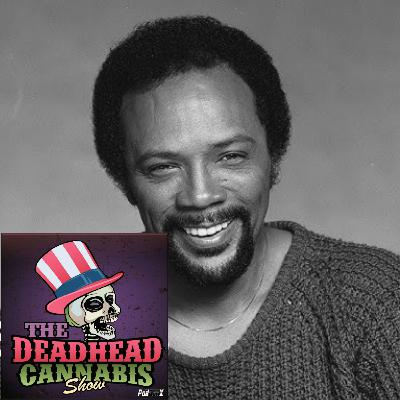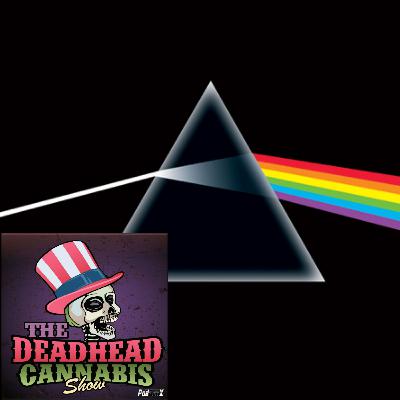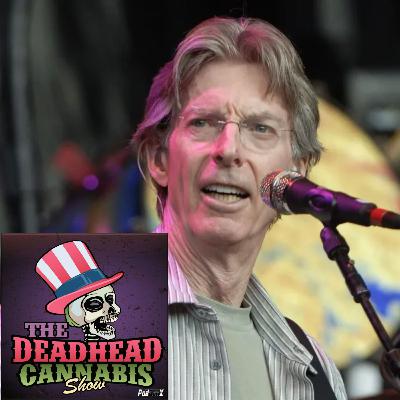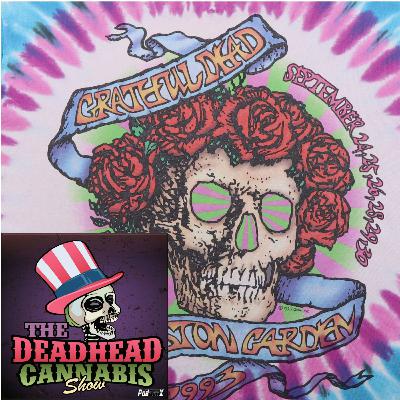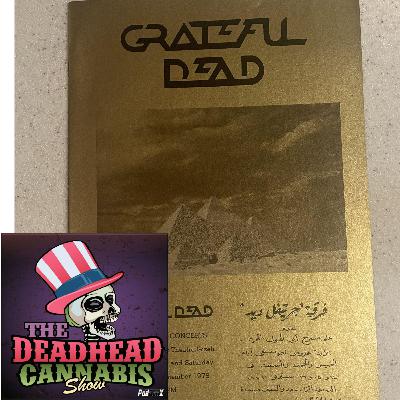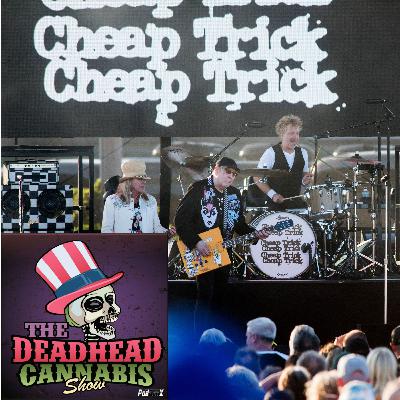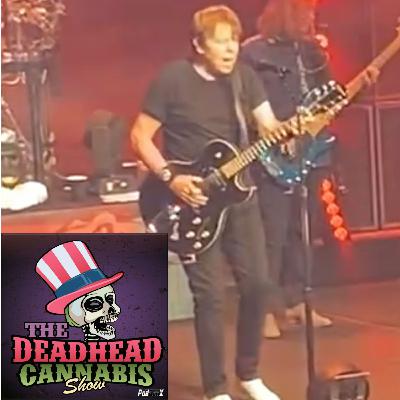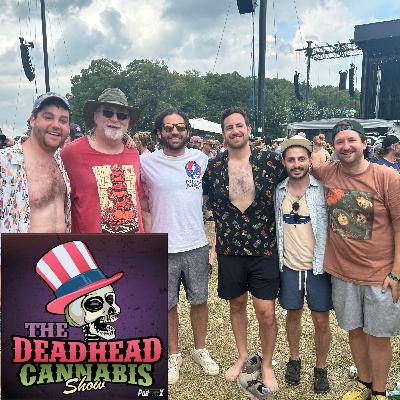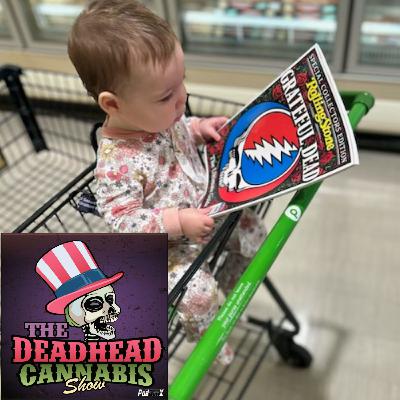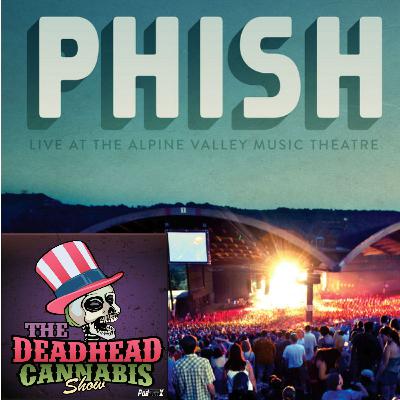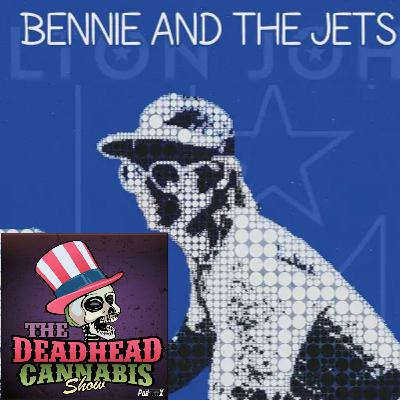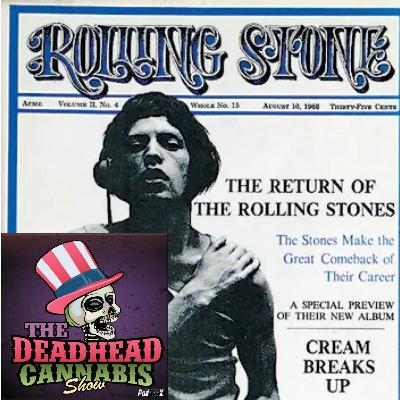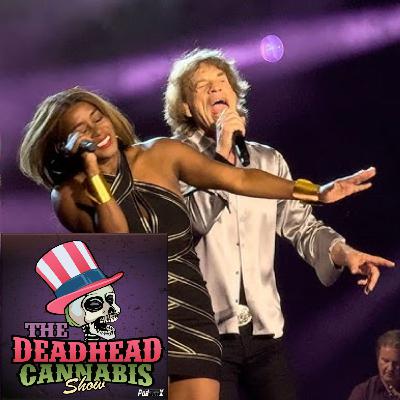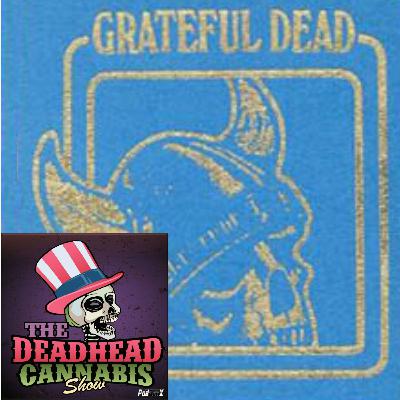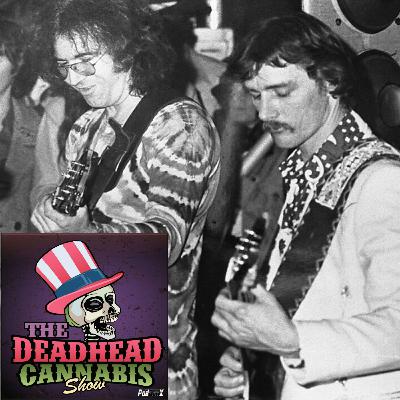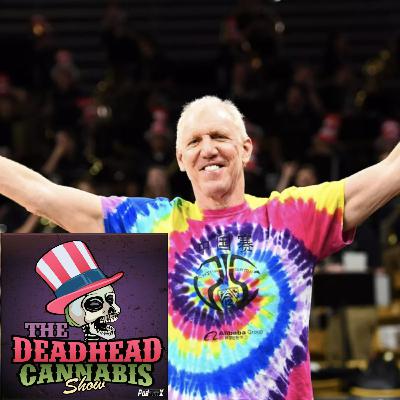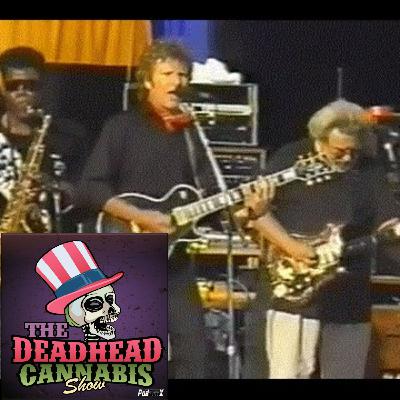Remembering Quincy Jones and The Grateful Dead having fun on Stage with the The Jones Gang Incident
Description
Phil Lesh: A Tribute to a Musical Icon
In this episode of the Deadhead Cannabis Show, Larry Mishkin discusses the significance of the Grateful Dead's concert on November 4, 1977, at Colgate University, along with various music news updates, tributes to Phil Lesh, and reflections on Quincy Jones's legacy. The conversation highlights the dynamics of the band during the concert, the impact of newer jam bands like Goose, and the importance of preserving musical legacies through releases like Dave's Picks. In this episode, Larry discusses the latest music news, particularly focusing on the Grateful Dead's legacy and their recent box set releases. He reflects on the band's unique performances and the significance of their music. The conversation then shifts to marijuana legalization efforts, particularly in Florida, where a recent ballot measure was rejected despite public support. Larry expresses disappointment in the political landscape surrounding marijuana and emphasizes the benefits of legalization. The episode concludes with a deep dive into a specific Grateful Dead performance, highlighting the band's improvisational style and the joy their music brings to fans.
Takeaways
- This episode was recorded on Election Day, November 5th.
- The Grateful Dead's show on November 4, 1977, is a highlight.
- The Jones Gang incident showcased the band's playful dynamics.
- Goose represents the new generation of jam bands.
- Phil Lesh's influence on music and improvisation is profound.
- Quincy Jones's legacy in music is celebrated.
- Dave's Picks Volume 52 features a remarkable concert.
- The importance of preserving musical history through recordings.
- Larry reflects on his personal experiences with the Grateful Dead.
- The episode blends cannabis culture with music appreciation. Music brings joy and relaxation after a long day.
- The Grateful Dead's legacy continues to inspire new generations.
- Unique performances can redefine classic songs.
- Marijuana legalization faces political challenges despite public support.
- The benefits of marijuana legalization are well-documented.
- Music and cannabis culture often intersect in meaningful ways.
- The improvisational nature of the Grateful Dead's music is a hallmark of their performances.
- Public sentiment can sometimes clash with political decisions.
- The Grateful Dead's music remains timeless and relevant.
- Engaging with music and cannabis responsibly enhances the experience.
Sound Bites
- "This is a special episode being taped on Election Day."
- "It's just a big love fest with all these guys."
- "Phil has changed my life."
- "Quincy was the man I won my first Grammy with."
- "It's a wonderful, wonderful show."
- "You just don't know what you're missing out on."
- "It's just cool to hear it."
- "This is a pretty amazing second set."
- "It's a very cool segue from one into the other."
- "It's a must hear."
- "It's a wonderful part of the show."
- "It's a very unfortunate thing that this happened."
- "People in Florida are gonna smoke marijuana anyway."
- "It's a great way to end this wonderful show."
Chapters
00:00 Introduction and Context of the Episode
03:45 Exploring the Grateful Dead's November 4, 1977 Show
11:34 The Jones Gang Incident and Band Dynamics
16:49 Music News: Goose and Gen 3 Jam Bands
20:51 Tributes to Phil Lesh and Reflections on Legacy
25:30 Remembering Quincy Jones: A Musical Legend
30:06 Dave's Picks Volume 52: A Review
36:30 Celebrating Music and New Releases
38:53 Exploring the Grateful Dead's Legacy
44:17 Marijuana News and Legalization Efforts
01:01:01 Deep Dive into Grateful Dead Performances
01:09:55 Closing Thoughts and Reflections
LARRY'S NOTES:
Grateful Dead November 11, 1977 (47 years ago)
Cotterrell Gymnasium
Colgate University
Hamilton, NY
Dave’s Picks #12
This show literally “popped up out of nowhere” during the very famous fall tour of the very famous 1977 year of touring. On November 1st they played in Detroit’s legendary Cobo Hall. The next night up in Toronto. They had Nov. 3 set for Utica, NY but the show fell through a few weeks before. They were still set for Rochester on Nov. 5th (which was released as Dick’s Picks #34) and Binghamton on Nov. 7th. So less than 4 weeks before this show, while already hitting the road, negotiations began for this show which were only finalized the night before.
Cotterrell gym on the Colgate campus is a small venue. Think large high school gym with pull out bleachers. There were only 3,000 folks at the show. But 2300 of them were held for Colgate students so only 700 were sold to the public or really the Deadheads. A tough ticket as the Heads used to say. But those who made it in had a ball and saw one of the best shows of the year.
One of those shows that lots of Deadheads wished they had seen.
This version of the show from Archive, is an audience tape and a great contrast to other episodes where we have featured Dead show clips from audience tapes. This one was taped by Jerry Moore who was set up directly behind the soundboard. Go to Archive and check out the entire show.
On a personal note, glad to see that Archive is back up and running after its hacking episode a few weeks ago.
INTRO: Dupree’s Diamond Blues
Track #8
- "Dupree's Diamond Blues" is based on an American folk song titled "Frankie Dupree," which was based on a real historical figure named Frank Dupree.
According to In The Pine: Selected Kentucky Folksongs, Dupree tried robbing a diamond wedding ring from a jewelry store in Atlanta, Georgia, in 1921. He intended to give the ring to his girlfriend Betty. When a police officer showed up, Dupree shot him dead. He then fled to Chicago where he killed another officer and wounded others.
Authorities eventually apprehended Dupree while he was getting his mail. They shipped him back to Atlanta where he was executed on September 1, 1922. - The song is the second track on the Grateful Dead's third album, Aoxomoxoa (1969). As with most of the songs on the album, Dead lyricist Robert Hunter wrote the words and Dead frontman Jerry Garcia wrote the music.
- Well when I get those jelly roll blues
The term "jelly roll" was once common African American slang for a woman's genitalia. The great ragtime pianist Jelly Roll Morton took his name from that very meaning. In 1924, Morton recorded an influential jazz song titled "Jelly Roll Blues," which is most likely what Hunter is referencing here.
- Debuted in January, 1969 and played a total of 17 times that year.
- Then dropped until Oct 2, 1977 at the Paramount Theater in Portland, OR, played 4 times that year, this version being the last one of the year.
- Played twice in 1978, then put back on the shelf until Aug. 28, 1982 at the Oregon County Fair in Veneta, OR (home to the famous show from August 27, 1972 to support the Creamery).
- From ’82 to ’90 played at least once a year, ’85 was the outlier with 16 performances
- Only played two more times, both in 1994.
This is a great version with Jerry’s lyrics and playing both very strong.
The 8th song of the first set following: GO TO ARCHIVE LINK
A beautiful Bertha opening but I have featured that song so much, and it is such a common opener, that I needed to go with something else today. I love it from the 1969 Fillmore West shows where two of the nights the second set would start with DuPree’s into Mountains of the Moon before jumping into the fabulous Dark Star/St. Stephen/11/Lovelight suite (in my humble opinion, the best suite of songs ever played by the Dead and certainly the one that best defines the band and the basic foundation that supports so much of their music.
Played: 82 times
First: January 24, 1969 at Avalon Ballroom, San Francisco, CA, USA
Last: October 13, 1994 at Madison Square Garden, New York, NY, USA
SHOW No. 1: Tuning (start of second set, stage banter re Jones Gang)
Track #10
:15 – End
Why did Phil do this? To kill time, he was dosed, adding a bit of levity to the evening’s proceedings. Or there is this:
Two nights before the Dead played in Toronto at Seneca College’s Field House. The night before was at Cobo Hall in Detroit. So they took the 3d off while traveling from Toronto to Hamilton, NY to play this show. Apparently, the band could not or did not want to try to take their stash into Canada. Keith Richards of th

